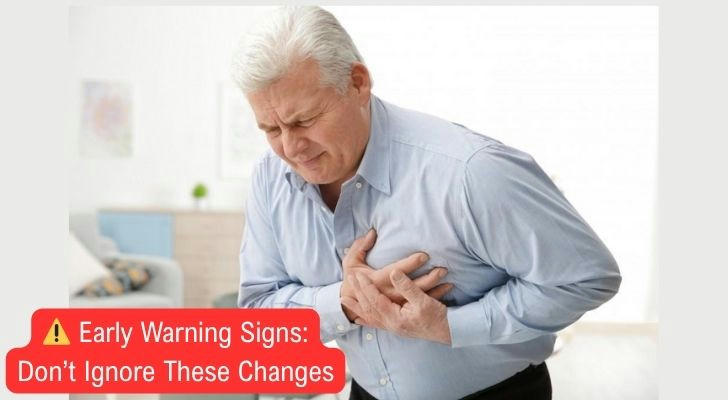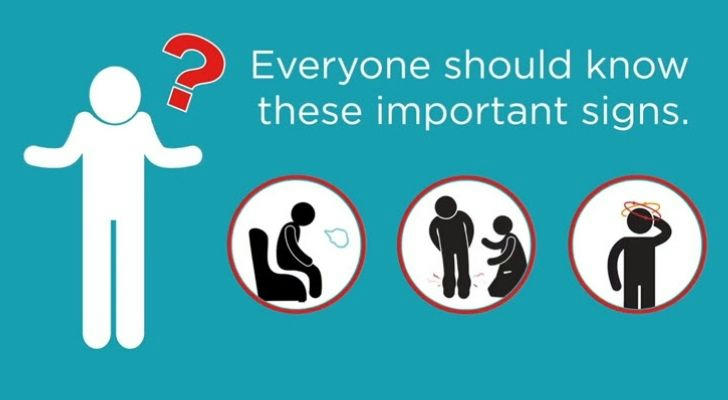💓 Early Signs of Heart Failure: What You Should Know
Heart failure affects millions of people across the U.S. While the name sounds alarming, recognizing the early signs can make a major difference. Knowing what to look for—and when to speak with a doctor—can help you take control and protect your health for the long run. Even if symptoms seem like normal aging, they may point to something more serious. Acting early often leads to better outcomes.

What Is Heart Failure and How Does It Develop?
Heart failure doesn’t mean the heart has stopped. It means the heart can’t pump blood as effectively as the body needs. This can develop over time due to high blood pressure, heart disease, or damage from a previous heart attack.
To compensate, the heart may beat faster or grow larger. But eventually, this puts more strain on the body—causing fatigue, swelling, and other symptoms.
👉 According to the Centers for Disease Control and Prevention (CDC), about 6.2 million adults in the U.S. have heart failure. As the population ages, that number continues to rise.
⚠️ Early Warning Signs: Don’t Ignore These Changes
Heart failure often begins with subtle symptoms that are easy to overlook. If you notice any of the following, it's worth checking with a healthcare provider:

Shortness of breath, especially when lying down or during mild activity
Fatigue or weakness doing everyday tasks
Swelling in the feet, ankles, or legs
A persistent cough, sometimes with pink or white mucus
Rapid or irregular heartbeat
Difficulty doing activities that used to feel easy
These symptoms often come on gradually. Paying attention to your body—and acting early—can prevent the condition from getting worse.
🩺 How Heart Failure Affects the Body
Because the heart supports every system, heart failure can have wide-reaching effects:
Lungs: Fluid buildup can make breathing harder
Kidneys: Weakened blood flow may cause swelling and waste retention
Liver: Can become enlarged or congested
Stomach and digestion: May lead to nausea or loss of appetite
Brain: Less oxygen can lead to confusion or dizziness
Muscles and limbs: Weakness or cramping in the legs or arms
The impact varies, but these symptoms are signs that the body isn’t getting the support it needs.
🧬 Who’s at Higher Risk for Heart Failure?
Several factors increase the risk of heart failure, including:
High blood pressure
Heart disease or previous heart attack
Diabetes
Obesity
Smoking or excessive alcohol use
A sedentary lifestyle
👉 The American Heart Association notes that people over 65 account for about 75% of hospitalizations due to heart failure in the U.S.
Many of these risk factors can be improved through lifestyle changes and regular medical care.
🧪 How Is Heart Failure Diagnosed?
Doctors use a combination of exams and tests to confirm a diagnosis:
Physical examination and review of symptoms
Echocardiogram to view the heart in motion
Electrocardiogram (ECG) to check rhythm
Blood tests to detect stress markers or inflammation
Chest X-ray to check heart size and fluid in the lungs
Stress test or MRI for more detailed imaging
Early diagnosis allows for more treatment options and better outcomes.
💊 What Treatments Are Available?
While there’s no single cure, treatment can help control symptoms and improve quality of life:
Medications: Including ACE inhibitors, beta-blockers, and diuretics
Lifestyle changes: Healthy diet, physical activity, quitting smoking
Cardiac rehabilitation: Structured programs for heart health recovery
Implantable devices: Pacemakers or defibrillators if needed
Surgery: Valve repair or bypass surgery in certain cases
Heart transplant: For advanced heart failure when other options are exhausted
Doctors tailor care plans to each person’s specific condition and goals.
✅ What You Can Do Right Now
If you’ve noticed swelling, fatigue, or shortness of breath, don’t wait. Getting checked out early may prevent complications later on.
Try these small, daily actions to support your heart:
Move your body in ways that feel good
Choose lower-sodium foods and more fresh ingredients
Stay consistent with medical appointments
Weigh yourself daily if advised—sudden gain may indicate fluid retention
Join a walking group or support program in your area
🔚 Final Thoughts
Heart failure is a serious but manageable condition. Recognizing the early symptoms, understanding your risk, and working with a healthcare team can help you stay active and independent. Even small changes in lifestyle, combined with the right treatment, can make a powerful impact on your long-term health.
This article is for general information only and should not be used as a substitute for medical advice. Always consult your healthcare provider for personalized care.
